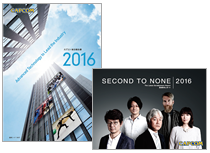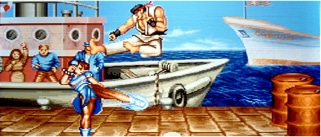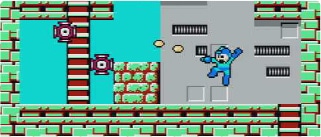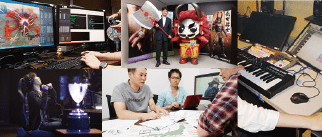- Can you tell us a little bit about yourself and your mission as Studio Director at Capcom Vancouver?
- I was working in games for 18 years before joining Capcom. After working as Executive Producer on Dead Rising 4 I became Studio Director of Capcom Vancouver in the summer of 2015. Now, I am responsible for the overall vision and direction of the studio, along with the day-to-day operations. I provide creative oversight to what we make, striving to be cost effective without sacrificing creativity. My mission is to make great products that both sell well and that people love.
- So, what do you think people will love about Dead Rising 4?
- Dead Rising 4 brings back the ultimate fan favorite and original hero of the franchise, Frank West, along with hundreds of weapons and objects to interact with, and an incredible amount of zombies—it’s the ultimate zombie killing playground! Beyond that, the game features an investigation mode where Frank uses his trademark camera to solve puzzles, all-new kinds of zombies, including ones that will run, jump and claw through anything to get you, a high-powered Exo Suit for Frank and a world that is truly alive: you’ll see survivors battling zombies, government forces and even each other. This adds to the variety and replayabilty like never before.
- It seems like you’ve come up with a lot of new elements for the game. Where did these ideas come from?
- We are all gamers, and we talked about what we would all like Frank to do in the game. What kinds of new features do we want to see—even if we didn’t know exactly how to make them yet. We asked ourselves, who is Frank today, and how has he changed? How can we make him more relevant for today’s audience while keeping “Frank fans” happy?
- So, you had an idea of what sort of interesting things you wanted Frank to do from the outset.
- Again, it all comes down to saying things like “wouldn’t it be cool if we could…” and then putting together a plan to do it. Nobody knows how to make all of the features when you first design a game. You figure that out as you start the production process. You know something would be really cool, and then you find a way to make it happen.
- What details were you particular about, or unwilling to compromise on?
- We really wanted Dead Rising 4 to look better than the previous game, and we were not willing to compromise on visuals or framerate. I’m happy to say both are better for Dead Rising 4. We have spent a lot of time on game performance, so we have hundreds and hundreds of zombies on screen at the same time, while keeping framerate and resolution smooth. That was a key for us this time.
- Are there any specific episodes you can share about how you achieved this?
- When we first started, we decided we wanted to have “freshly infected” zombies that could run, jump and climb to get at you. That required a specialized animation set. At first, we could only get one or two of those zombies in the game along with the horde. Today, we can get dozens of them chasing you—and that was all due to hard work, effective animation and memory management. We employ better ways of displaying hundreds of zombies by turning off the AI for zombies far away and out of sight. As you get closer to them, they start to wake up, but you don’t see that because we make sure they look like the rest of the zombies through use of smaller, ambient animations.
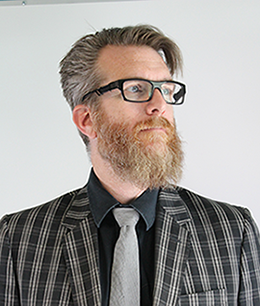

- Why does this franchise resonate with players in North America and Europe?
- We are the original zombie action adventure game in an open world setting. The focus on fun, humor and exploration sets us apart. People love our weapon combo system, which makes it even more fun to destroy thousands and thousands of zombies every time you play. People love to play at their own pace as well, so if they want to take their time and explore, or get right to the story it’s their choice. You can play your way!
- More generally, what kind of games do players in the west want?
- Players in the west demand value and depth; they want great looking games and great stories, but most of all, gameplay quality has to be top priority. Gamers in the west also want strong IPs that they can grow with, so it’s important to plan titles and IPs that can last. Online is also key—and an area that we need to continue to focus on.
- Could you tell us specifically what you mean by gameplay quality?
- Quality in this area means quite a few things: from the quality of the animations and responsiveness, to the behavior of the AI in the game. People want to play games that act the way they should. Enemies should look for you and be threatening, not easily fooled or stupid in their actions. People want to do exciting things that challenge both their mind and coordination. It’s important to be both predictable and unpredictable at the same time. Predictable in the sense that the game plays the way it should and you know what buttons and controls to use in every situation. Unpredictable, with regard to things like plot twists, finding new places to explore in the world and “happy accidents” that you find when playing games: like blowing up part of the world with an explosive to find a hidden passage behind a wall—complete with a new mission, enemy or treasure to find. You need to be able to put down the controller after playing and say, “that was awesome!”
- What are the benefits of developing titles targeted at western markets in a studio situated in the west?
- Like learning a language, it helps to be immersed in a country and culture when developing for that market. I believe we have the best of both worlds here: we have the incredible support and IP of Capcom Japan, partnered with us out here in the west. Strategically, you need to be completely in tune with your customers and target market, and I believe Capcom Vancouver in particular is set up to succeed in this area.
- Being so far away, how do you work with Capcom Japan?
- I enjoy the benefits of working directly with Capcom Japan through our parent company, Capcom USA. They act as a culture bridge, helping us with things like translation and communications. We keep in constant contact with Capcom Japan through regular video conferences and physical trips to each studio. Every time I am in Osaka, I am grateful for the warm welcome and genuine partnerships we are building. Of course, sending videos and game builds back and forth between studios helps a lot because no matter what country you are in, you can always play our games and find a common language there!



- How many people are working at Capcom Vancouver at the moment?
- We actually have 250 people now. (As of January 5, 2017)
- How do you manage a creative group like that?
- We are putting together a world-class game development framework to follow when making games. This system will allow us to put a plan in place that measures everything from budget to quality on a constant basis, rather than just during milestone deliveries. We have put together a very comprehensive plan for measuring and encouraging performance with our HR team. Long-term and short-term goals are measured and we spend a lot of time helping employees achieve them. We also have regular classes where employees can learn new skills or get better at an existing one.
- So, learning is something you emphasize at the studio.
- We are always offering classes and new things to learn for all of our employees. For example, we have life drawing classes for our artists—or anyone at CV who wants to learn—where a model comes into the studio and our people practice drawing and sculpting the human shape. We also provide equipment for people to experiment on after hours, like VR hardware, so they can perhaps apply the learnings to games we currently make. Most of all, however, we are doing a better job of listening to our employees. When you listen, you learn.
- Does this help give people at CV an edge?
- Yes, though it’s also important to look outwardly. We do regular “lunch and learns” for our staff and are putting together a guest speaker plan so we can bring in inspiring industry experts to speak. We also analyze the competition’s games a few times a month with all staff so we can all learn about what other companies are doing to succeed.
- What do you feel is most important for Capcom Vancouver?
- I believe in openness and transparency with both our partners and Capcom Japan. I believe in taking risks and never settling for average work. I believe in growing people’s careers, not just their job. I believe in finding new ways to be both creative and efficient. And most of all, I believe in growing Capcom Vancouver into the best studio in North America to work at.
- That is quite ambitious!
- I’m ready to help build the future of great entertainment products at Capcom. I’m looking forward to working closely with Japan to expand Capcom’s global reach with exciting new products and services.
- Personally, what are your strengths?
- I think I work well at building culture and vision at a company, and putting together great teams to make great products. I spend a lot of time mentoring and inspiring people to grow their careers and to grow Capcom Vancouver. It all comes down to results, and together with my teams, I am helping build Capcom Vancouver to create amazing things in the future.
- Speaking of the future, what do you want to achieve?
- I believe we need to build better relationships with our customers, so our future titles will be connected to our gamers even more deeply than before. Analytics and telemetry all need to tell us how our customers are using our products, and we must respond faster with updates and services to stay competitive. The new products we are working on now are so exciting and so much more connected—we can’t wait to share them with everyone!














